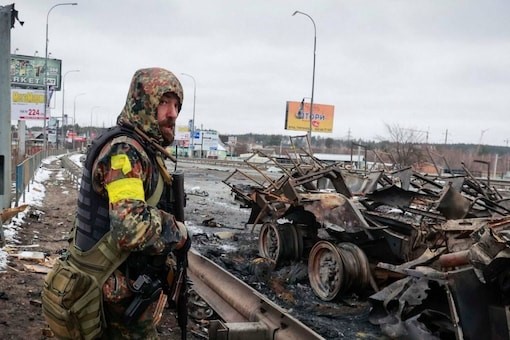
One year of Russia-Ukraine war: Top 10 moments you need to know

The ongoing Russia-Ukraine war is the first large war involving multiple actors, and the first major armed conflict in Europe since the end of World War II.
Also Watch: One year of Russia-Ukraine war spells more trouble for all of us
It has threatened the Cold War rivals into actual combatants, disrupted global food and energy supply lines, evoked the dangers of a nuclear war, and killed tens of thousands of soldiers and civilians. Here are 10 top moments in the war that have defined it.
- Russia’s launch of the “special military operation” in Ukraine on February 24, 2022 would mark the beginning of the first major war in Europe since the end of World War II, and would divide the world, disrupt global supply chains, causing acute food and energy crises across countries.
- The western sanctions imposed before February 24, and their intensification in February-March when the conflict was raging, marked a new kind of “economic war”, the kind of which the world had not seen before. The sanctions hurt the entire world, but Russia managed to cope, exposing the futility of such punitive actions.
- Russian forces’ retreat from Kyiv in the last week of March was a key moment, when Ukraine, emboldened by western support, held out, ending visions of a swift end to war, and promising a protracted conflict.
- The war has strengthened the Russia-China ties, whose strategic alliance was described by Presidents Xi Jinping and Vladimir Putin as friendship “with no limits” days on February 4, ten days before the war began, and may pit the two nuclear-armed countries against the US-NATO-Japan-South Korea-Australia alliance on the Taiwan question.
- Indian Foreign Minister S Jaishankar’s rap on European knuckles in March 2022 at Munich Security Conference – “Europe has to grow out of the mindset that its problems are the world’s problems but the world’s problems are not Europe’s problems” on the back of India’s insistence on buying discounted Russian energy supplies and its refusal to condemn Russia at the UN, indicated India’s increasing self-confidence, and global ambitions to become leader of the Third World.
- However, Prime Minister Narendra Modi’s remark to President Putin on the sidelines of the SCO summit in September 2022, “This is not a time of war…” which found place in the G-20 declaration in December, reflected the global worries about the war, and India’s assertion as a peace-maker.
- The Bundestag’s approval on June 3, 2022, of Berlin’s plan to spend 100 billion Euros on defence effectively marked the end of German post-war pacifism, that may in future bring the west European nation in conflict with Russia, and rouse worries among victims of Nazi Germany during WW II.
- Six months later, on December 16, 2022, the German step was emulated by Japan, which announced a new security strategy, which envisions doubling defence spending to 2 per cent of GDP, or $320 billion over ten years, effectively nullifying Article 9 of the Asian country’s constitution, which forbids war.
- One alarming fall-out of the war is that it has pushed the world back to nuclear energy, with its inherent dangers. On August 25, 2022, Japan announced it was reviving the Fukushima plant, one of the seven it would bring back into operation, and would commission new plants. On October 17, 2022, Germany, which led the rest of the world in phasing out nuclear plants, extended the life of its remaining three plants, and is likely to add new plants.
- During Joe Biden’s visit to Kyiv on February 20, the US President promised to stand with Ukraine for “as long as it takes”. The next day Russian President Vladimir Putin addressed the nation, saying Russia was fighting for its “very existence”, torpedoing any hope the world had about the war coming to an end.
Next Story


